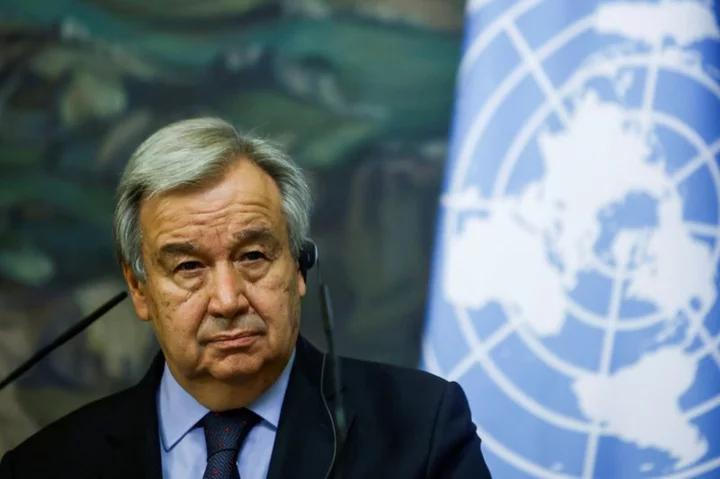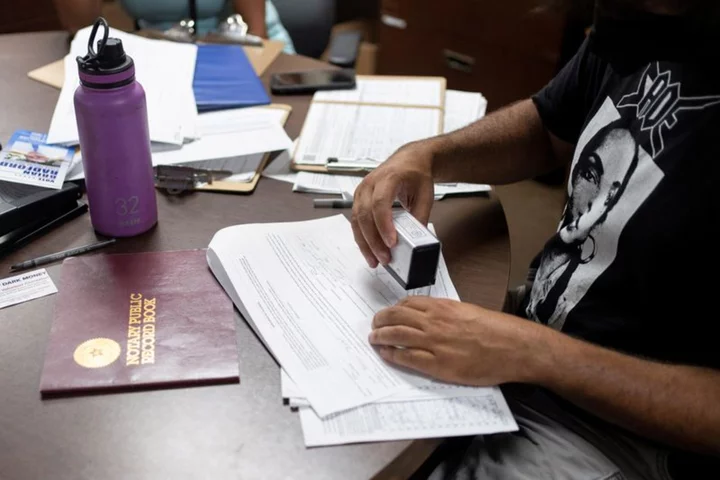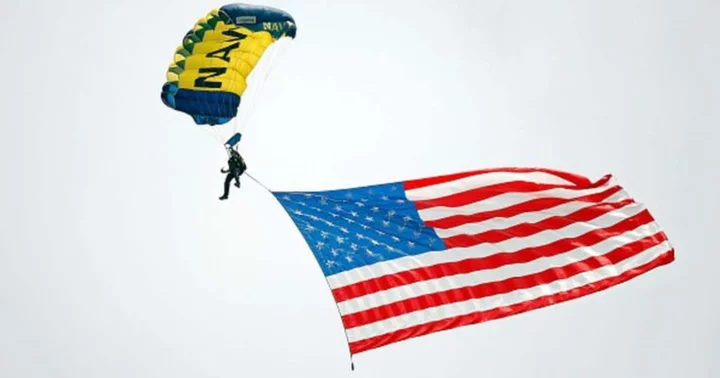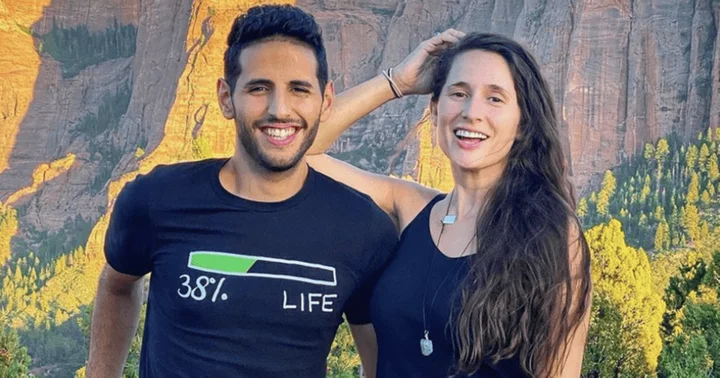By Harold Isaac and Michelle Nichols
PORT-AU-PRINCE/UNITED NATIONS United Nations Secretary-General Antonio Guterres visited Haiti on Saturday to shine a spotlight on the crises faced by the impoverished Caribbean country as it struggles to combat violent gangs that have largely overrun the capital Port-au-Prince.
Guterres' visit comes nearly nine months after he backed a request by Haiti's government for help and proposed that one or more nations send a "rapid action force" to support the Haitian security services. No such force has yet been deployed as no country has stepped up to take the lead.
"The people of Haiti continue to suffer one of the worst human rights crises in decades and a major humanitarian emergency," Guterres reported in April to the U.N. Security Council, describing the insecurity in Port-au-Prince as "comparable to countries in armed conflict."
In September last year gangs worsened the humanitarian crisis by blocking a fuel terminal for six weeks, halting most economic activity. The U.N. Security Council in October sanctioned Haiti's most powerful gangster, who was accused of leading the blockade to protest government fuel subsidies cuts.
The United States and Canada have also imposed sanctions on Haitian political figures and business people.
While there has been broad support for Guterres' proposal to create a rapid action force with several countries expressing interest in contributing, none has volunteered to lead a deployment, diplomats say.
Countries have been wary of supporting the unelected administration of Prime Minister Ariel Henry, who has said fair elections cannot be held under the current insecurity. Haiti has been without any elected representatives since January.
Henry, who took power in July 2021 days after the assassination of President Jovenel Moise, has pledged to leave office by Feb. 7, 2024, after repeatedly postponing elections citing first an August 2021 earthquake that killed more than 2,000 people, and then the gang violence.
NO COMMUNITY SPARED FROM VIOLENCE
Guterres told the Security Council in April that gangs have been tightening their grip around metropolitan Port-au-Prince, "where no commune is now spared from gang-related turf wars."
"In many violence-affected areas, economic activity remains completely paralyzed. At the same time, there has been an increase in the number of people leaving Haiti, both by sea and across the land border to the Dominican Republic," he said.
The U.N. refugee agency said some 73,500 people fled Haiti last year. The United Nations says 5.2 million - nearly half Haiti's population – need humanitarian assistance in 2023. It has appealed for $720 million to deliver aid this year, but so far it is only 23% funded.
Guterres has said the Haitian police estimate there are seven major gang coalitions and around 200 affiliated groups. They have ambushed and attacked the security forces, while "other gang tactics include spreading terror by indiscriminately shooting at passengers on public transport and rape."
Any foreign-led military rapid action force would not deploy as a U.N. mission, but would likely receive U.N. Security Council backing. The U.S. has said it would seek a council resolution to show support for such an operation, but diplomats said that would only happen once a force was formed.
A U.N. political mission in currently deployed in Haiti.
U.N. peacekeepers were deployed to Haiti in 2004 after a rebellion led to the ouster and exile of then-President Jean-Bertrand Aristide. Peacekeeping troops left in 2017 and were replaced by U.N. police, who departed in 2019.
Haitians are wary of an armed U.N. presence. The country was free of cholera until 2010, when U.N. peacekeepers dumped infected sewage into a river. More than 9,000 people died of the disease, and some 800,000 fell ill.
(Reporting by Michelle Nichols; Editing by Daniel Wallis)









